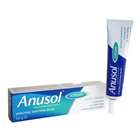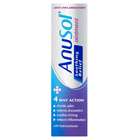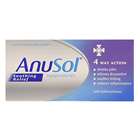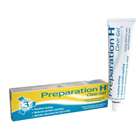What are piles?
Piles are pads of tissue around the anus caused by swelling or damage to the blood vessels in the rectum. They tend to be round and can often project around 1-2cm outside of the anus.
How are piles caused?
Piles can be caused by a number of factors including:
- Straining to have a poo.
- High blood pressure within the blood vessels of the rectum.
- During pregnancy, the hormones can increase the pressure on the blood vessels of the rectum, and the weight of the baby can also cause a strain on the bowels.
- Placing too much pressure on the anus, for example sitting on a hard surface. Heavier people may be prone to piles because of the increased pressure on the anus when sitting, although heavier people tend to have more cushioning around the bottom which can help alleviate the symptoms.
How can piles be prevented?
If you find yourself straining when having a poo, then you may find that a
laxative will help. You can also cut down on salt and unhealthy foods in order to reduce your blood pressure. Some people may also find that
aspirin will help thin the blood and hence help to prevent piles.
How can piles be treated?
The
treatments on this page vary in their mechanisms of action.
Germoloids products contain zinc oxide, an astringent that reduces the swelling, as well as lidocaine, an anaesthetic to numb the pain. Germoloids products are available in ointment, cream and suppository forms.
Anusol contains zinc oxide and the range also includes
hydrocortisone suppositories and
ointments.
Preparation H is also based around natural ingredients.
Anacal prevents the body from producing chemicals that cause swelling, and also contains an anaesthetic.
Lanacane treats the itching, and
DulcoEase softens the stools to make the toilet experience less painful.
Why don't all piles treatments contain hydrocortisone?
Although
hydrocortisone is a powerful anti-inflammatory and significantly reduces the size of piles, it can also cause thinning of the delicate skin around the anus if used for long periods of time. It is advisable to only use hydrocortisone for periods of a week or less, and switch to non-hydrocortisone treatments after that. Some people may also be allergic to hydrocortisone, and as hydrocortisone is a steroid, is not suitable for patients who are already using a steroid.
What if I am bleeding?
Sometimes, piles can rupture and bleed. However, if the bleeding is particularly heavy or continuous, then you should contact your doctor immediately as it may be indicative of a deeper condition.
Can piles become infected?
Piles can become infected and hence it is necessary to keep the affected area clean. A product such as
Anusol Soothing Wipes will help to maintain cleanliness after going to the loo.
How do I insert a suppository if the symptoms are painful?
You may find that a
lubricant will help to ease the suppository into the anus.
Are my bowels falling out?
Piles are merely inflamed tissues within the anus, and not a sign that the bowels are about to fall out in any way. There is a condition known as "rectal prolapse" where the bowels can actually come out, but this is a different thing to piles. Rectal prolapse can be caused by childbirth or any condition that causes the rectal ligaments to weaken. It can also affect toddlers or the elderly.
Broadly speaking, there are two types of piles:
external piles, and
internal piles. External piles look like grapes around the anus are more noticeable and more commonly-complained about. For these, we recommend a cream or ointment, such as
Anusol Cream or
Germoloids Ointment.
Internal piles are often less painful, but can be noticed as streaks of bright red blood in stools, and discomfort when passing stools. Internal piles can be treated with a suppository product. For people on the move with moderate, less painful internal piles, our most popular product is
Anusol Suppositories. We would also recommend wipes for hygiene such as the
Germoloids Soothing Wipes, together with a soothing cream such as
Anusol Cream.
For more painful piles, we recommend
Germoloids Ointment or
Cream=germoloids cream, together with the soothing
wipes=germoloids wipes. The
suppositories=germoloids suppositories would also be handy if you are on the move.
For severe piles, we recommend using
Germoloids ointment or
cream=germoloids cream; again, together with the
germoloids wipes. You might also like to try the
Dunlopillo Ring Cushion.
For
internal piles, we recommend one of the suppository treatments above, as the treatment will get straight to the target with a minimum of mess.
Preparation H is also a very popular formula, though please note that the formula changed in April 2008.
A
lubricant may be useful if trying to insert suppositories.
Click here to view the treatments for piles










